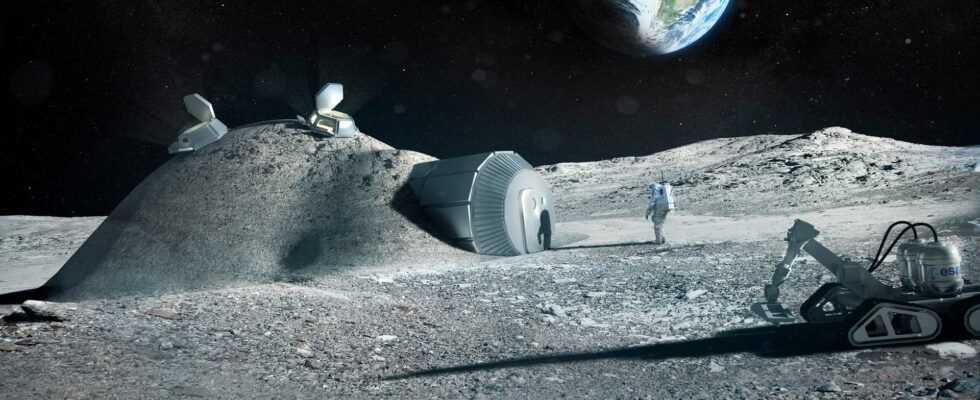Certainly work less with pen and paper! In fact, it doesn’t really matter what exactly you did in your previous job. The main thing is that to become an astronaut, one must first be in a science subject. After the application process, the chosen ones receive extensive basic training. You learn so much different specialist knowledge, from physics to medicine, biology, geography, chemistry, etc. That’s what makes this job so exciting! I believe there is no job on earth that is so diverse.
Could you still carry out experiments for your theoretical research on the moon or Mars?
Since theoretical cosmology deals with questions of the large scales, local gravity on Mars or the Moon would not be so suitable for this. But there are plans to build a Moon Village on the moon, for example, with research facilities and telescopes. Since it is supposed to arise on the far side of the moon, interfering radio signals will be shielded from the earth, and one will be able to observe the universe better from there.
Do you think there will be a first Martian colony in this century? Which topics would be important in this society?
A Martian colony will probably only be possible in 100 to 200 years. In the initial phases of this new society, it will be more about developing resources, conquering territories and securing the continued existence of humanity. Before such a development phase, however, research colonies will definitely be set up first so that the necessary infrastructure can be guaranteed – for example isolated capsules with oxygen, which enable plants and animals to be grown. I also think that most of the effort will be devoted to private tourism and the fight for leadership in it.
Do you see parallels between the two professions – terrestrial physicist and astronaut?
As a scientist, it is my duty to push the limits of human knowledge. I take our world and humanity very seriously. I see my job as a privileged opportunity to make an important contribution to the future of mankind through scientific knowledge and advances in research and technology. I could very well pursue this vision at ESA.
As a professor as well as an astronaut, you also have to be able to communicate well. In lectures one not only wants to pass on known knowledge, but also arouse curiosity for the unexplored. The ESA outreach programs also hold many public lectures to get an even larger audience interested in space travel and science. That is precisely why it would be a great honor for me if I had the opportunity to inspire young people and, above all, to motivate young women to embark on a career in the natural sciences.
Do you currently have a role model yourself?
I admire Sarah Springman, who will be the rector here at ETH Zurich until the end of 2021. Not only is she an incredibly strong person, but she’s so approachable and open-minded. Such leaders are needed in the academic world. The competitive pressure is high and there are still many prejudices. I myself am very grateful that, with an ERC Starting Grant from the European Research Council, I have been able to research as an assistant professor at ETH for three years. But even with other awards like the ETH Latsis Prize, there were always difficult moments, especially as a woman. In situations like this, Sarah was there for me personally and gave me very good advice.
How do you experience the women’s movement in research?
Currently, women in research still face more obstacles than men, both on a personal and institutional level. In my position as a professor, I try to involve women especially from poor areas in my research and to enable them to stay at places like the ETH. But it always takes a special effort. And you should actually make it easier for these people so that they have a chance! That is precisely why I am so happy that there are role models like Sarah Springman. With her enormous energy – she is not only a professor but also a triathlete – she launched so many initiatives at ETH, in particular the “Women in Space and Science” program. In this context, I was able to take part in a zoom panel discussion myself in May and share my experiences. It was touching to receive emails from so many young students afterwards. However, in order to solve problems such as the falling proportion of women in science (“leaky pipeline”), that is, to pave the way through studies, doctorates and professorships for all genders, equal opportunities must be deeply anchored in the system. Then women can also live out their love for physics in the long term.
What message would you like to send to our young readers?
Take the road less traveled and dare to dream! Translated, this means: take your own path and dare to dream!
What developments do you expect in cosmology in this century?
The proof or refutation of dark energy or dark matter would take the field of research to a new level. A description of the nonlinear growth of cosmic structures and of gravitational waves in theory is also important.
